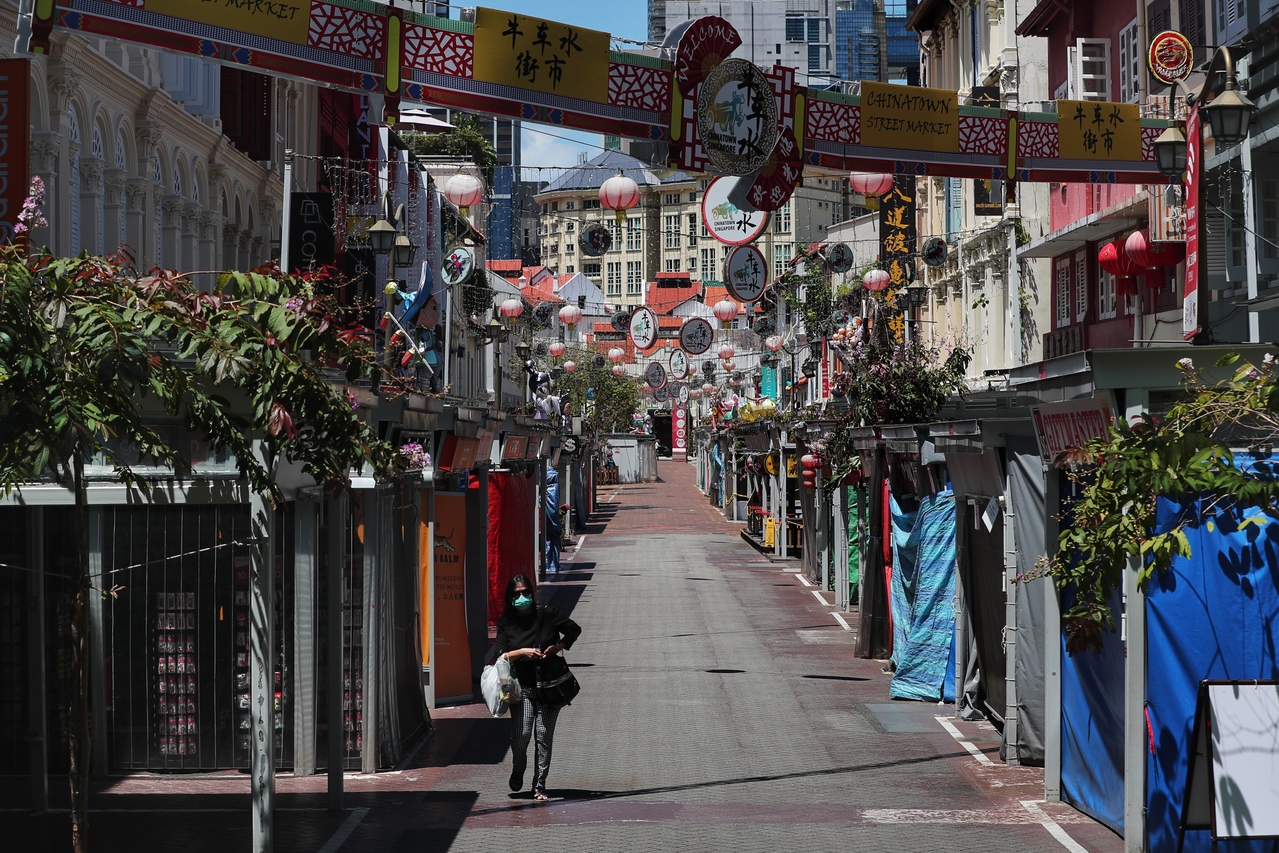Parliament: Phase 3 could last over a year, restrictions may be reimposed if cases spike again
Sign up now: Get ST's newsletters delivered to your inbox

Health Minister Gan Kim Yong said measures must be put in place to enable everyone to stay safe while continuing to live, work and mark major life events.
ST PHOTO: KELVIN CHNG
SINGAPORE - Phase three of the nation's reopening in the wake of Covid-19 could last a year or more, Health Minister Gan Kim Yong told Parliament on Wednesday (Nov 4).
Ms Cheng Li Hui (Tampines GRC) had asked about phase three, including what factors are taken into account when deciding on the maximum number of people allowed for various events, what safeguards will be put in place when activities resume on a larger scale, and what might happen if cases were to surge again.
In response, Mr Gan reiterated that phase three - which Singapore could move into by year-end if the virus remains under control here - would not be a return to pre-Covid days.
It would last until the rest of the world has the virus under tight control or when effective treatments or vaccines are widely available, he added.
This means that measures must be put in place to enable everyone to stay safe while continuing to live, work and mark major life events.
Mr Gan said group size limits depend on factors such as how frequently an activity takes place, what potential risks it has, and whether additional safety measures can be implemented to mitigate such risks.
Pointing to the large clusters of Covid-19 cases that had formed during events like the Safra Jurong dinner and the Mei Hwan Drive Chinese New Year gathering, Mr Gan said: "The probability of transmission tends to be higher in social settings... (as) it is natural to lower our guard when we are among family and friends."
He noted that having meals in a group raises the risk of transmission as masks are removed while eating and drinking.
"Many of us go out for meals practically every day, and with different groups, the risk is multiplied many times. Hence, we have taken a cautious approach in expanding group sizes," he said.
The authorities are currently considering increasing group size limits from five to eight in phase 3.
Mr Gan said that before the pandemic, banquet tables used to have the capacity for about 10 people - so the new limit of eight is the maximum that such tables can take while allowing for additional safe distancing.
He noted that gatherings of any size pose a risk of Covid-19 transmission, but at the same time, it is "not tenable nor desirable" to ban social gatherings for a long period of time.
Allowing gatherings of up to eight in phase three will strike a balance between maintaining safe distance and permitting larger groups to meet, he said.
He added that larger group sizes can be allowed in settings where safe management measures can be put in place.
These include weddings, which are still considered high-risk and have resulted in clusters across the world.
Mr Gan noted that there have been requests to raise the cap on the number of wedding participants. So additional measures have already been put in place, including keeping guests from mingling beyond groups of five at their tables, and ensuring they use SafeEntry and TraceTogether.
"This allows more family and friends to participate while still minimising the total number of interactions," he said.
Testing and contact tracing are the two keys to allowing more activities to resume, the minister said.
On testing, he said pre-event testing is being piloted to allow higher-risk activities such as weddings to scale up safely, by reducing the chance of a Covid-19 case being present at the event.
But because the antigen rapid test kits used for pre-event testing are not as accurate as polymerase chain reaction tests, they cannot completely eliminate the chance that a Covid-19 case will be at an event. Safe management measures will thus still have to be observed.
On contact tracing, Mr Gan said the authorities are progressively rolling out TraceTogether-only SafeEntry to ensure that all those who are visiting places where they are likely to be in contact with many others for prolonged periods, or where human traffic is high, have the TraceTogether app or token.
This will help speed up contact tracing efforts and provide anyone who becomes infected with early medical care.
He added that safe distancing ambassadors and enforcement officers will continue to be deployed.
"Our objective in phase three is to reach a steady state of permitted economic and social activities until an effective vaccine or treatment is widely available. If we can put in place more enablers and risk-mitigating measures that allow for further reopening and scaling up of activities, we will. On the other hand, if and when conditions worsen, we will take targeted measures too," Mr Gan said.
He added: "Should there be a spike in cases, we need to respond swiftly and decisively. We cannot rule out the need to reimpose measures or introduce new measures in order to keep the virus under control."
Calling for continued vigilance, he said: "To continue on our steady path to phase 3, each of us must play our part to adhere to safe management measures, maintain good personal hygiene, and actively participate in the TraceTogether programme. Together, we will arrive at phase three, and emerge stronger ultimately."


